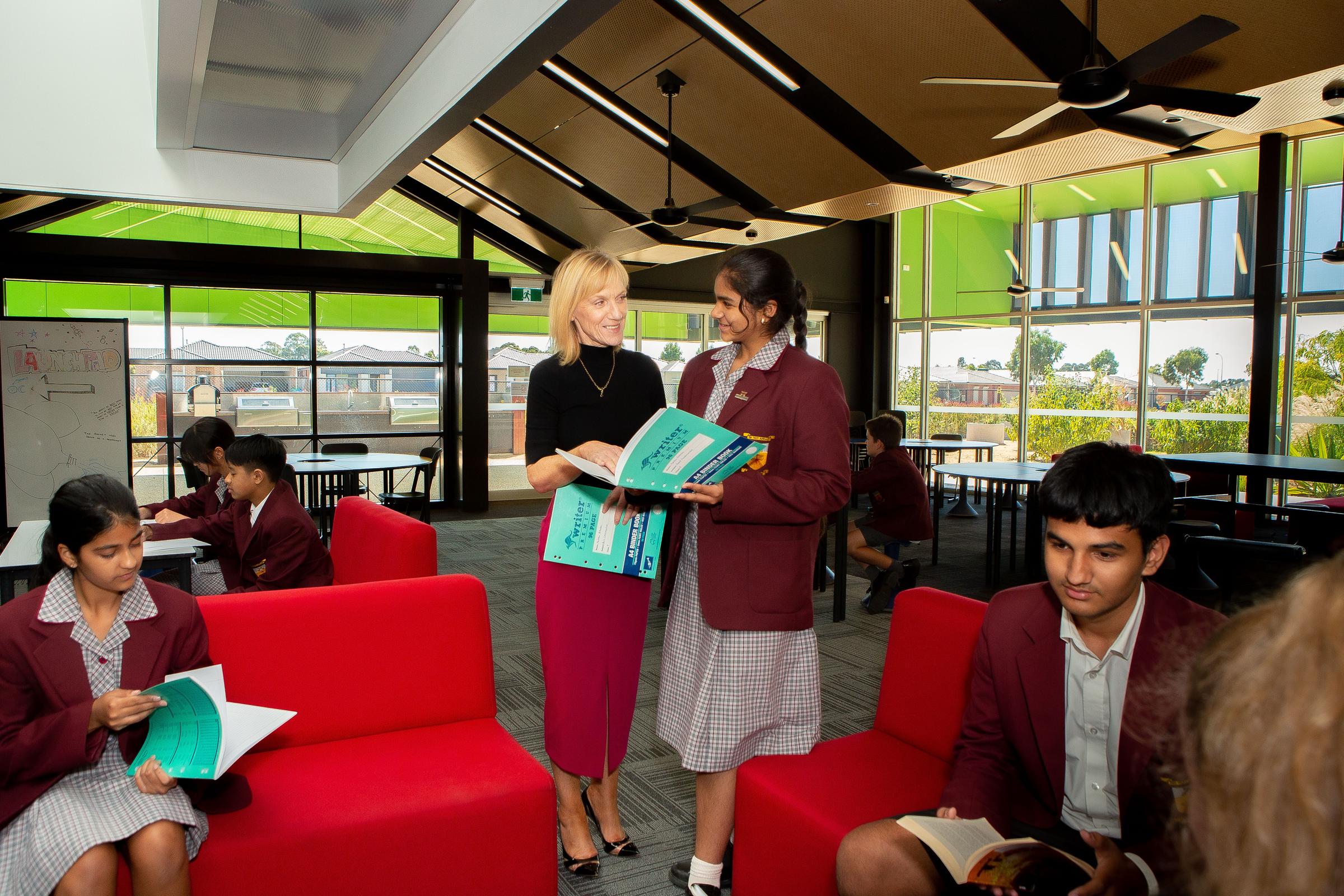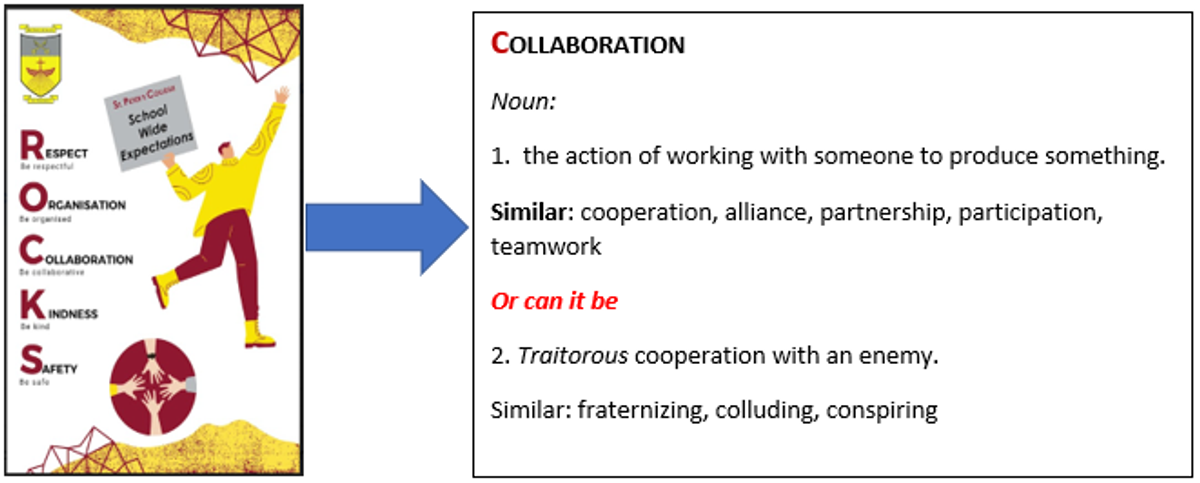Clyde North Campus News

Collaboration and Organisation
Suddenly it is Term Two, Week Four. We are now getting into the routine of school and the weeks are starting to fly by. Remembering our focus this Term is on Collaboration and Organisation. This week we need to take a closer look how language used by our young people can either support or corrupt the essence of successful Collaboration.
As a College community we embrace the concept of Collaboration that involves positive and respectful interactions and communication with each other as individuals, peers, teachers, parish, and families. Respectful language is a critical component of collaboration, which brings me to this week’s topic, respectful language and specifically its place on social media.
We all know that each generation tends to develop their own version of words or speak and more so now with texting, mimes, and gifs. All of which creates a language with nuances and messages such as LOL 😊 😷 that parents and teachers may not fully understand or get.
Most of the memes, gifs and text abbreviations are harmless and when used appropriately can be funny, endearing and even clever leading to positive and respectful collaboration. Group chats can be a innovative way for our teens to collaborate, creating cooperation, partnerships and teamwork. However group chats can turn collaboration into traitorous cooperation, conspiring to do harm to individuals and the language used in this type of group chat an lead to cyber-bullying and in some situation warrant the involvement of the police and the e-commissioner.
Michael Carr-Gregg a leading specialising in parenting, adolescents and the use of technology for mental health has this to say about language and our young people.
- In today’s world, it is increasingly common to hear socially offensive language on the streets, on social media channels, streaming services and in some forms of modern music. While swearing is becoming more common and less taboo, the use of derogatory language or the act of swearing at someone, or about someone, is a form of verbal violence. It transgresses the usual rules of social interaction by impinging on an individual’s self-image and sense of dignity
- It is becoming apparent that some young people are being influenced by the language they hear. Proliferating the use of swear words can sometimes normalise, glamorise and desensitise their impact for kids who may misunderstand the true meaning of some derogatory terms. Whilst some students may use swearing or derogatory terms as a misguided attempt at belonging, others may use it simply because they are still learning how to moderate their language and are not accustomed to adjusting suit different situations
I raise the issue of language as we have started to see an increase in students, particularly in the 13 to 16 age range, engaging in group chats where the language is simply vile, degrading, and harmful. I am amazed at how angry these chats can be, using language and likes and memes to target individuals in what no parent would ever consider possible of their child. Children make mistakes and then push boundaries which requires our intervention. As parents we must be checking on what our children are posting online. Experts tell us that to fit in young people may feel they have to speak like, text like and post like their peers using swearing and derogatory terms to fit in.
Cyber-bullying behaviour may include:
- abusive texts and emails
- hurtful messages, images or videos
- imitating others online
- excluding others online
- humiliating others online
- Nasty online gossip and chat
Where to start the conversation with our young people?
Group Chats are a communication platform that our modern society, especially our young people use and when the language is respectful and purposeful, true collaboration is the outcome. However, when Group Chats gain status through swearing, derogatory and aggressive language targeting individuals, everyone in the chat must be held accountable.
Whilst Group chats mostly happen outside of school hours, schools are asked to manage the behaviours of the young people involved in the chat by parents and guardians. Very often, these chats are happening at home in the late hours of the night. Parents and guardians need to help their children develop an intellectual muscle by teaching them the life skill of politely exiting a social situation that they feel uncomfortable in, online and off. It sounds simple, and it can be if we tackle this challenge together.
A question to ask our young, people would you send that text to your mum, dad, aunt, uncle, grandparent, teacher? If so, then hit send. If not don’t, and rethink what you really want to say.
In this week’s newsletter you will see a flyer advertising an exciting new resource that will be available very soon to all members of our community, on SPACE, Facebook, website and every newsletter we will highlight a special edition or report that we believe parents and guardians and students will find informative and empowering.
I wish you all a safe and productive week.
Julie Banda
Deputy Principal - Head of Clyde North Campus


